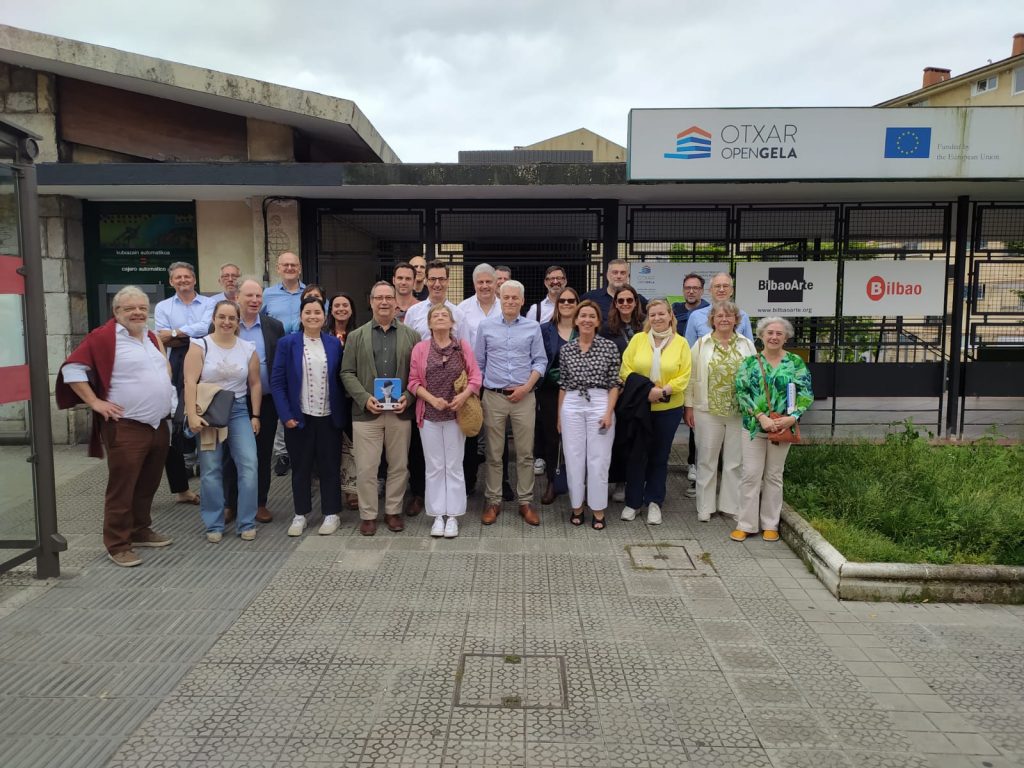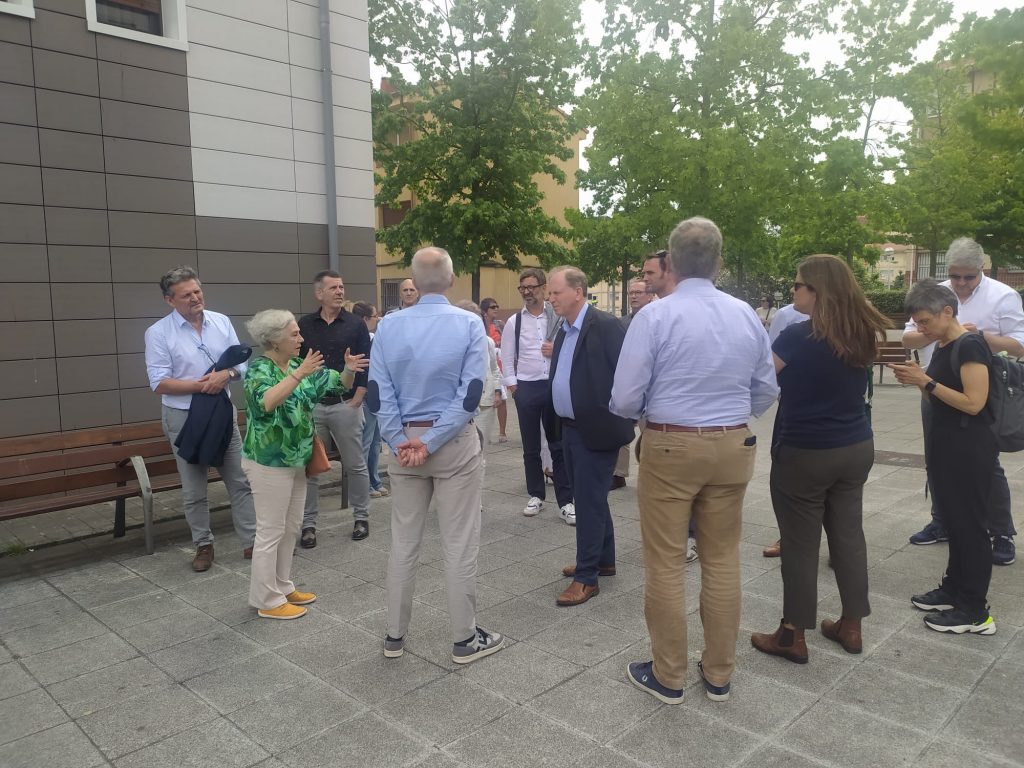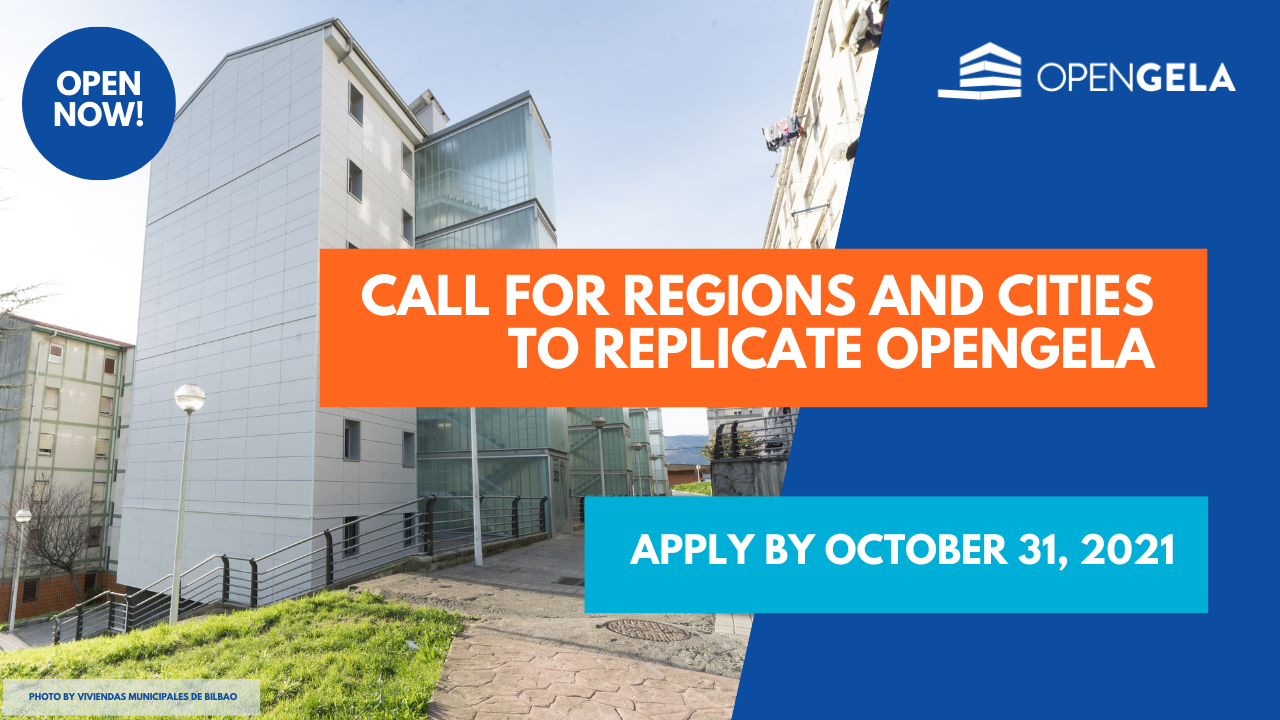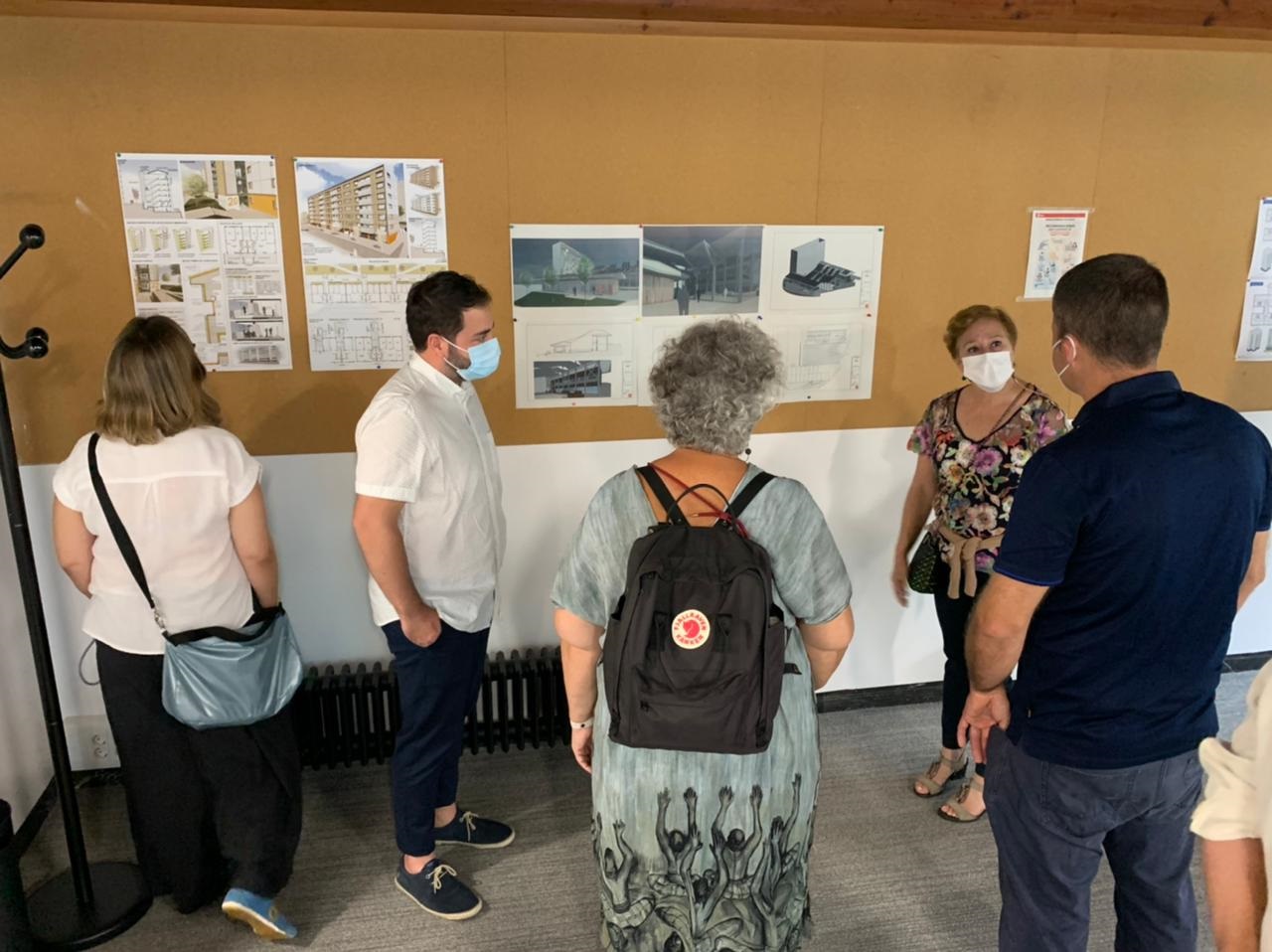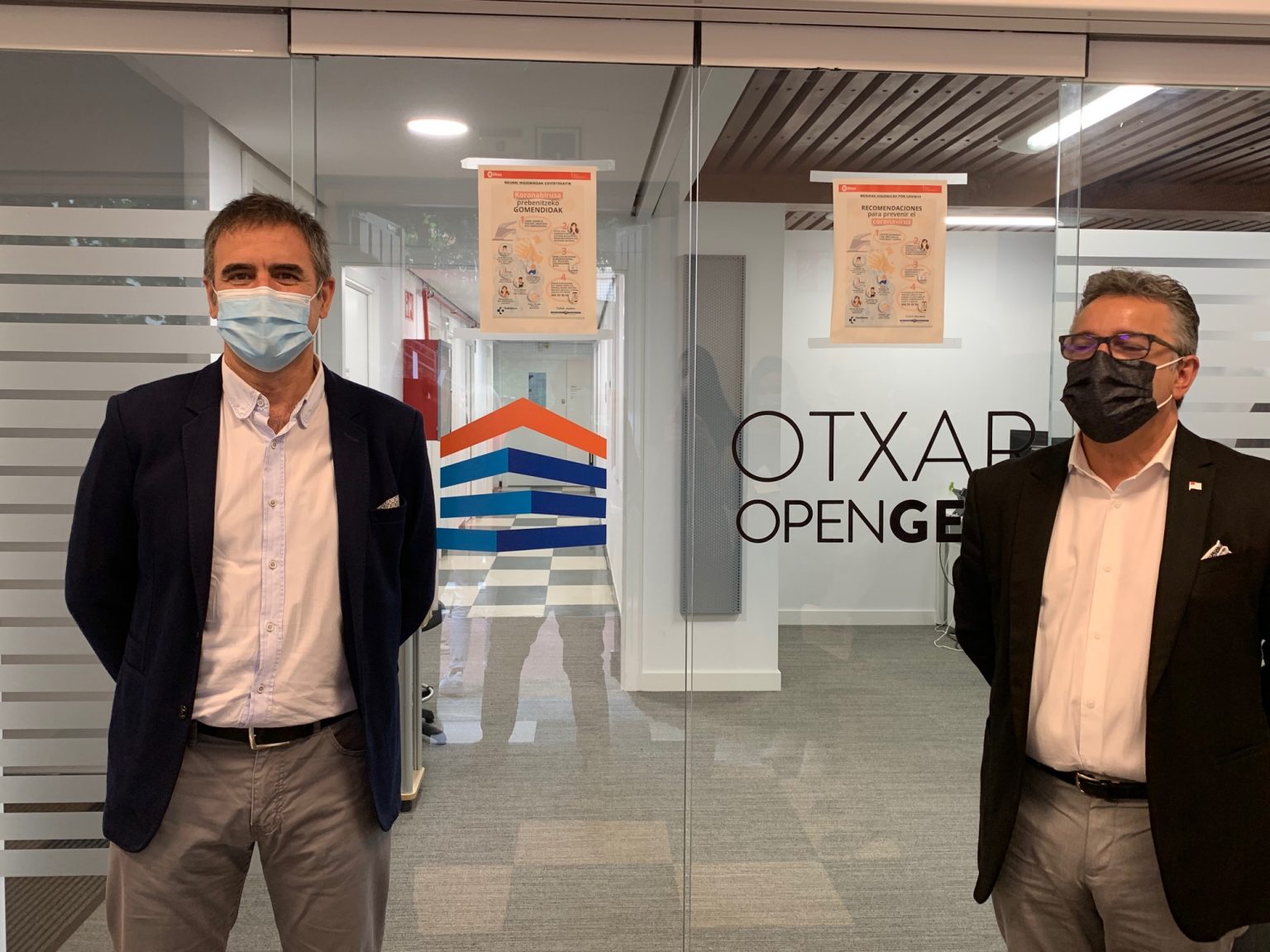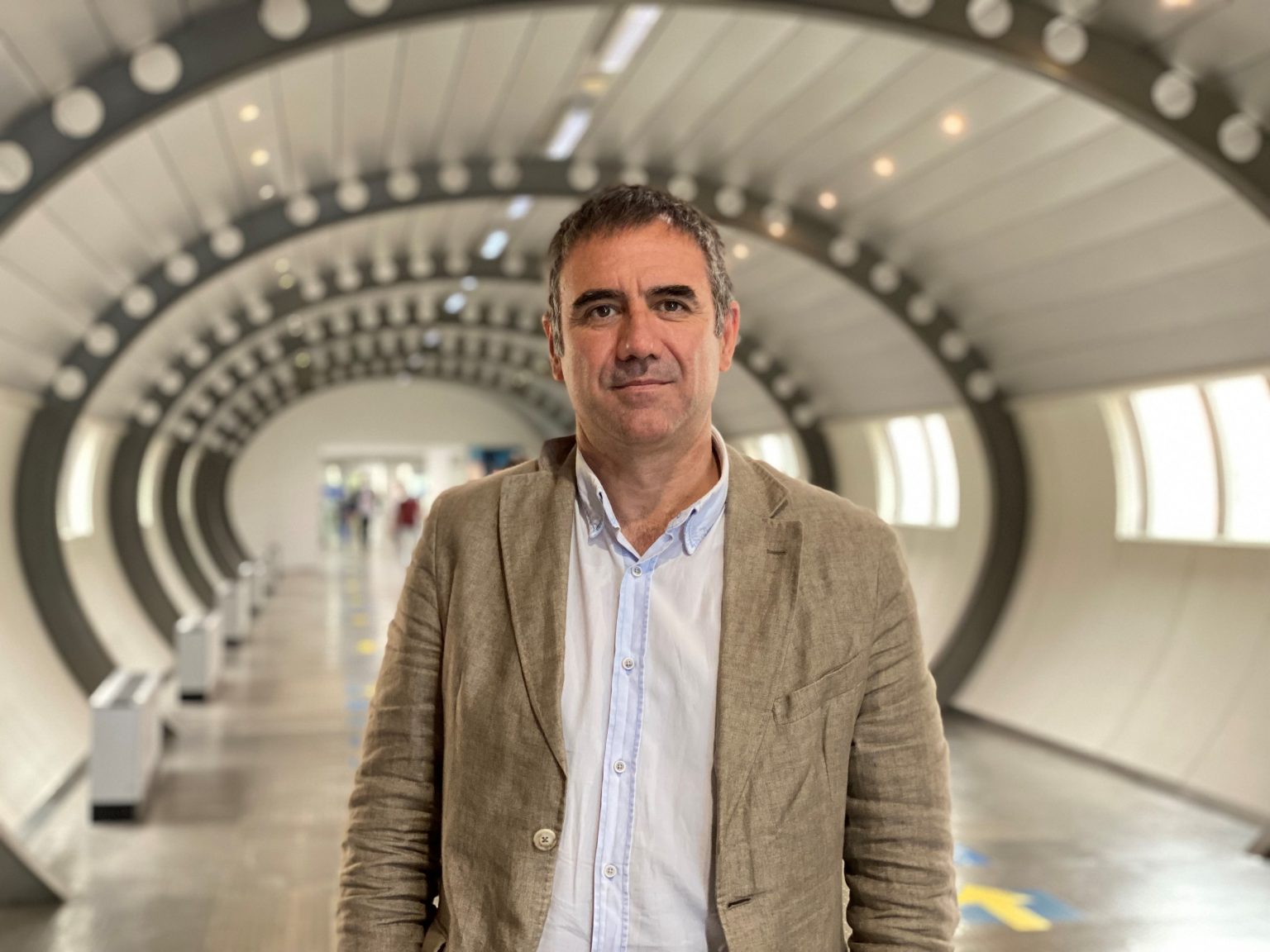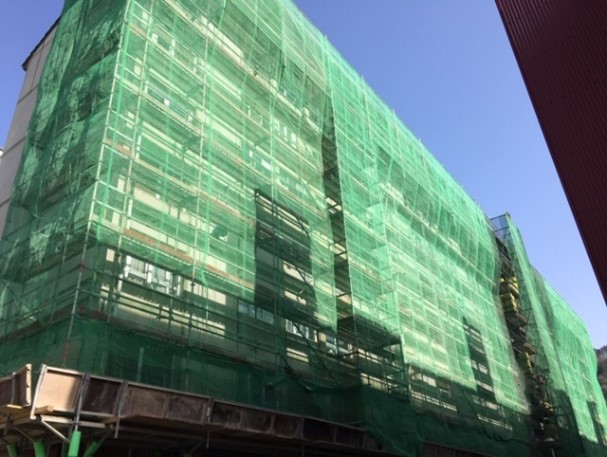
- Organised by the GAIA cluster and in collaboration with the partners of the BIRTUOSS project (Opengela Programme), the UPV/EHU International Summer Course on Energy Communities was held in Bilbao and Urdaibai.
- Success stories of energy communities established across Europe were presented and the need to empower citizens and stakeholders to get involved in such projects was discussed.
The UPV/EHU’s International Summer Course on Energy Communities, whose main focus is empowerment through sustainable energy, was held in Bilbao, Gernika-Lumo and Forua on 4 and 5 July. It explored the transformative potential of energy-positive neighbourhoods as the seeds of decarbonised and sustainable cities.
Attendees have been immersed in the opportunities offered by proximity offices, addressing theories, practical strategies and tangible experiences through test benches involving stakeholders in urban regeneration processes. In addition, there have been guided visits to successful cases such as the ‘Otxar Opengela’ in Otxarkoaga (Bilbao) and the Tek San Fidel energy community in Gernika-Lumo (Biscay).
The main objective of this course was to provide participants with an in-depth understanding of energy communities as an innovative model for sustainable energy generation and management. Once finished, they would be able to lead energy districts initiatives, as well as applying practical and sustainable solutions in their own environments.
The opening session was led by Ignacio de la Puerta, director of Territorial Planning and Urban Agenda of the Basque Government and leader of the BIRTUOSS project (Opengela programme); Momir Tabakovic, professor and researcher at the University of Applied Sciences Technikum Wien, and Jokin Garatea, director of the summer course and international head of GAIA.
De la Puerta opened the summer course with a perspective from public administration and governmental work on the extension of the model developed with the Opengela programme in the Basque Country. He also stated that «energy communities and positive energy districts are at the forefront of the energy transition, and that «these concepts imply that local communities generate, manage and consume energy in a sustainable way». The aim is to achieve «friendly, liveable and digital neighbourhoods» with «shared energy production facilities in neighbourhoods that turn them into positive energy districts», generating new opportunities for economic activity located in the neighbourhood itself, such as coworking spaces, which will have an impact on their revitalisation.
Tabakovic presented the example of energy communities and districts within the Prolight project, of which he is the coordinator. It aims to empower citizens in the participating districts to become active and responsible partners in the necessary low-carbon transition. These six demo districts are located in Vienna, Milano, Gernika-Lumo, Vaasa (Finland), Matosinhos (Portugal) and Kozani (Greece). In four districts (Gernika-Lumo, Milan, Matonsinhos and Kozani), preliminary conclusions have already been reached.
Garatea said that, in the context of energy efficiency, living labs play a crucial role in testing and refining innovative technologies and strategies for energy renovation. They provide a dynamic environment for experimentation, learning and scaling up successful practices.
Afterwards, the principles and advantages of proximity offices, working as one-stop shops for energy sustainability, were explored by Txari Vallejo, architect of Bilbao Municipal Housing; Nagore Urrutia, from the CAVIAR UPV/EHU research group, and Michael Heidenreich, from the Department of Renewable Energies of the University of Applied Sciences Technikum Wien. Case studies highlighting the tangible benefits and best practices linked to the BIRTUOSS (Opengela programme) and Prolight projects were presented.
Vallejo explained the principles of the Opengela programme approach, its application in different contexts and the results achieved through its implementation. This methodology underlines the importance of community participation, tailor-made solutions and the use of local resources. She also described the case of Otxarkoaga in Bilbao, with its proximity office, called Otxar Opengela. «We want this neighbourhood to become the centre of urban regeneration in Bilbao and an example for everyone,» she emphasised. In terms of renewable energies, she spoke of the installation of between 18 and 24 photovoltaic panels in Otxarkoaga, in one of the buildings on Txotena street.
Urrutia explained that in urban regeneration most of the building works are energy related. «It is good to focus on passive solutions, on the architecture of buildings. In fact, it is the most democratic solution we can offer as it is for everyone,» she said. There are also active solutions, which improve energy efficiency in thermal conditioning and allow greater control of indoor temperatures.
However, Urrutia warned that there is still an energy gap in Spain caused mainly by inaccurate physical modelling of buildings and tenant behaviour. This is where one-stop shops or proximity offices become an essential element, as they can empower and raise awareness of energy use among neighbours. She also emphasised the importance of courses on energy use in everyday life.
Heidenreich, who is involved in the Prolight project, also spoke about the one-stop shops, which, according to him, «should offer comprehensive advice on energy efficiency and solar projects, covering both technical and administrative aspects», as «the term energy community is a recent development and needs to be made known to people».
Jokin Garatea and Irene Bertolami, researcher at Eurac Research, shared experiences in the creation of energy communities and discussed strategies for participation and identification of multiple benefits for citizens and neighbourhoods.
Both agreed on the importance of communication and acceptance of these projects by citizens and stakeholders to get involved in them. They must feel that they are part of these energy communities and experience first-hand the positive impacts of the project. Garatea gave the example of Tek San Fidel in Gernika, a Prolight project, in which, through a cultural and creative approach, it has managed to involve citizens through collaborators such as San Fidel School and Kultur Etxea, which are part of the initiative.
Alessandro Rancati, from the EU Policy Lab and expert on the New European Bauhaus; Matina Di Gallo, project manager at Planet Idea, and Paula Ferrando, project analyst at GNE Finance, spoke about the importance of community participation in the success of neighbourhoods.
Rancati warned that a neighbourhood is a «complex adaptive system» where response cannot be predicted based on rational parameters, that it is based on co-evolution and where the «hidden talents» of the community cannot be predicted. Thus, there may be cultural differences, conflicts of interests and priorities, pre-existing conditions and unexpected events. He also mentioned the need to communicate, but with a learning purpose, that no governance model is perfect and that transparency, which is sometimes financially costly, needs to be underpinned by trust.
Di Gallo presented the D2FX project, developed by Planet Smart City, in which innovative initiatives such as gamification are carried out to actively involve residents in energy management and in which they receive rewards, thus fostering unity and demonstrating that individual efforts benefit everyone.
Ferrando explained the SHAPE-EU project and gave four examples of projects that have served as inspiration for others, such as Vilawatt in Viladecans; the energy community in Luče (Slovenia), the first to be developed in the country; the Watteco cooperative in Catalonia, which helps families and communities to achieve energy self-sufficiency, and Las Naves Brillen in Valencia.
In the last talk of the day, Pablo Agustín, researcher at TECNALIA Research and Innovation, and Noelia Ortiz, technical director of BUILD:INN, explored the potential of renewable energies at district level; they presented several innovative 360º technological solutions and materials for housing renovation to build energy positive neighbourhoods and the successful application in EU projects such as BIRTUOSS and drOp (specifically in the Santa Ana neighbourhood in Ermua).
The second day of the course took place in Gernika, specifically in the auditorium of the San Fidel School, with a visit to the school’s local energy community, called TEK San Fidel. It has 200 photovoltaic panels that occupy a surface area of 600 m2 and allow 150 homes and businesses in the area to consume renewable energy and reduce their electricity bills. It also avoids the emission of 885 tonnes of CO2 per year, equivalent to planting 3,500 CO2-absorbing trees for 25 years.
Afterwards, the context of the energy communities in the Urdaibai Biosphere Reserve was explored by Jose Maria Gorroño, Mayor of Gernika-Lumo; Mikel Magunazelaia, Mayor of Forua, and Javier Zuazola, commercial director of EDINOR, through practical cases that highlight demonstrable benefits.
To conclude, Ugaitz Gaztelu, co-founder of View arkitektura and professor at the University of the Basque Country; Jokin Garatea, Sustainability Councillor of Forua, and Alba Juncal, from the CAVIAR UPV/EHU research group, discussed sustainability and scalability to build positive energy neighbourhoods. Thus, they talked about sustainable renovation models for energy efficiency; the adoption of nature-based solutions in the area, and more specifically, the EU iCOSHELL project, and good practices of positive energy neighbourhoods.
Once the lectures were over, the participants put into practice everything they had learnt through a joint artistic work and visited energy efficiency projects and nature-based solutions in Forua.
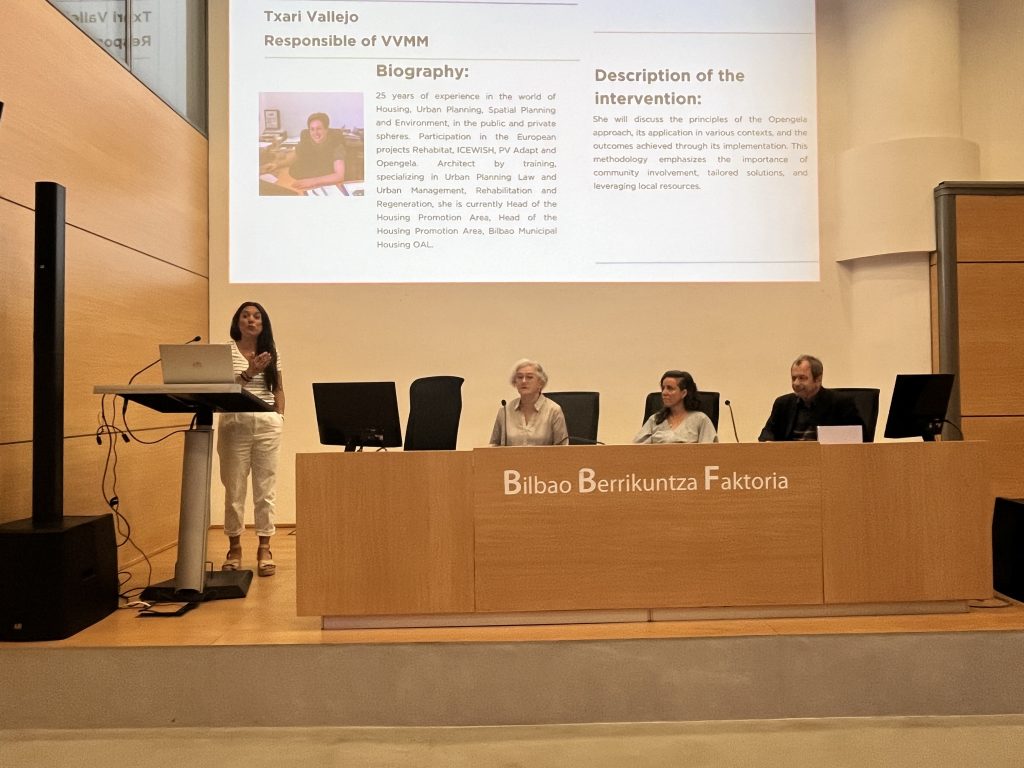
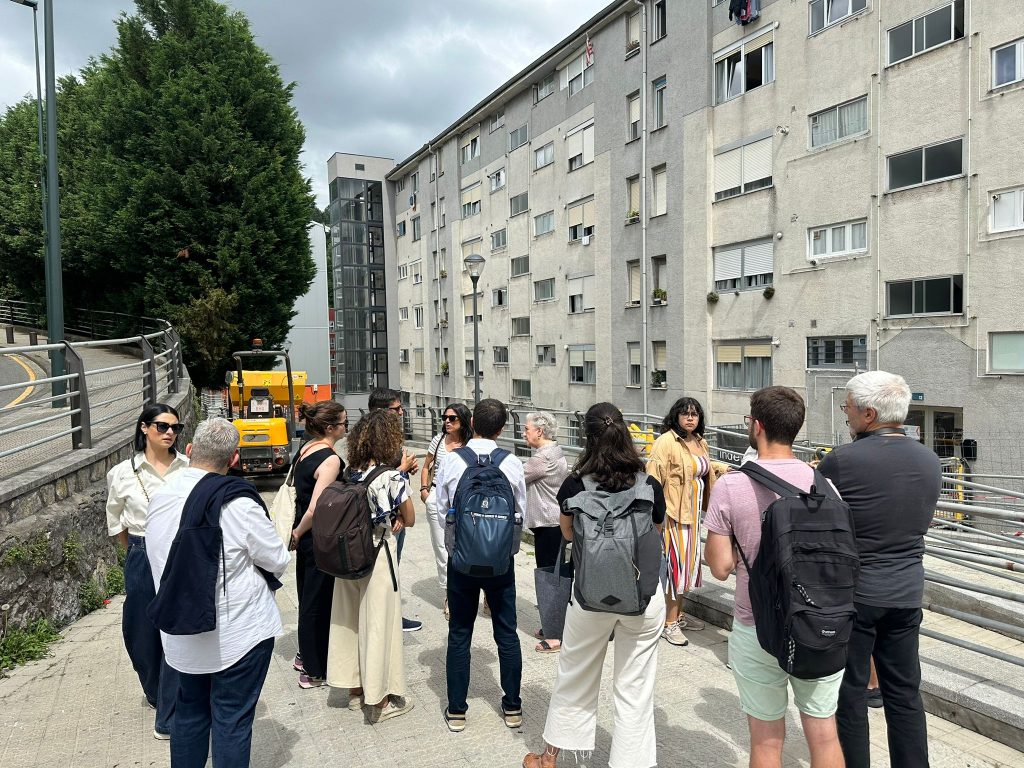
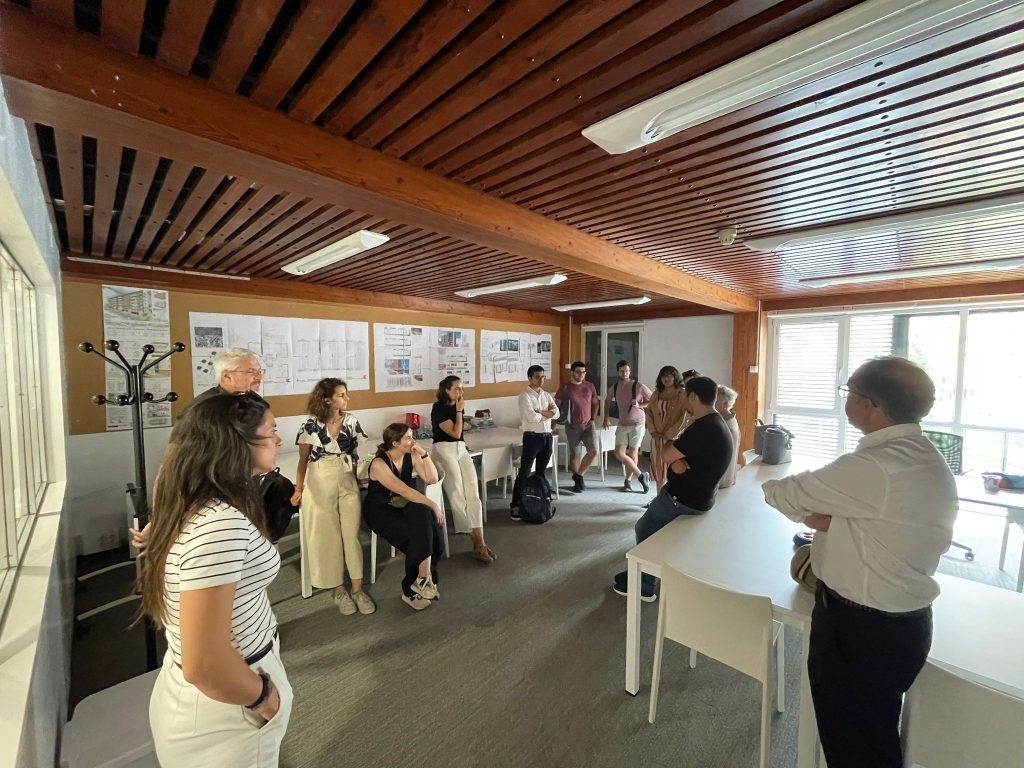
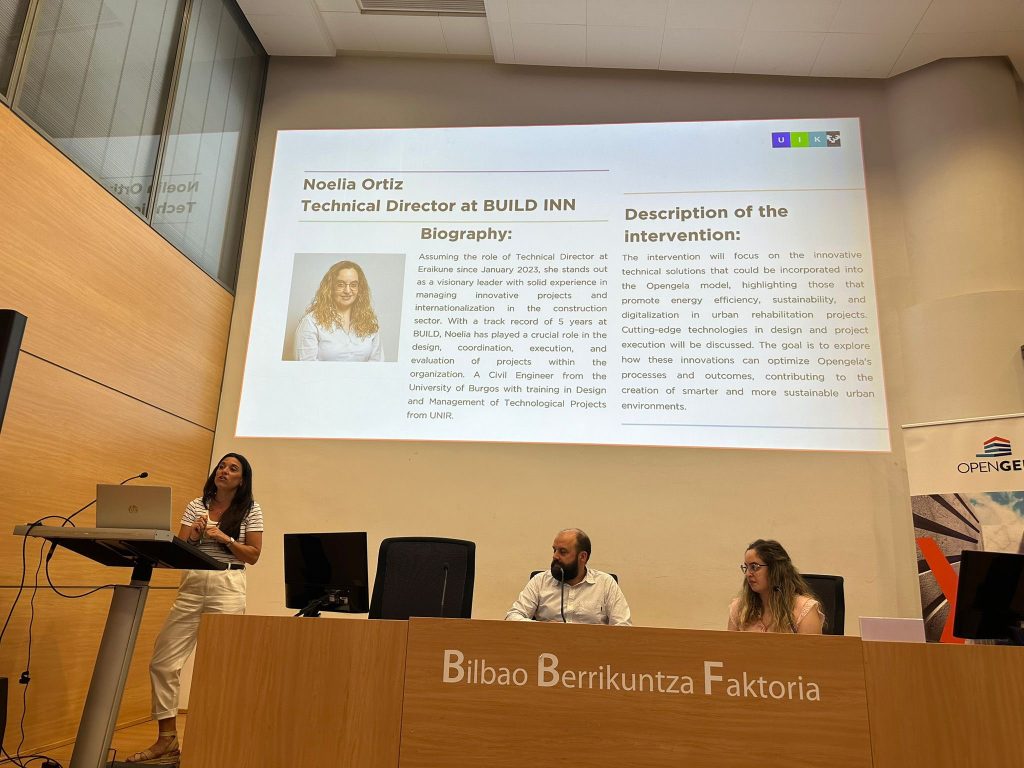
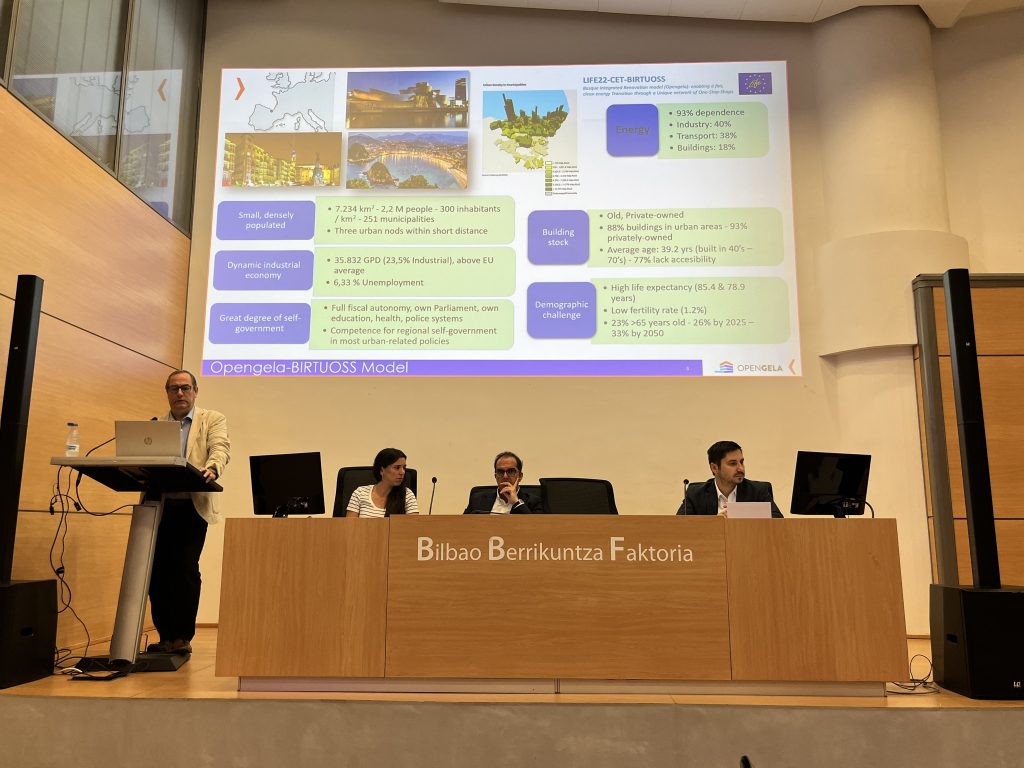
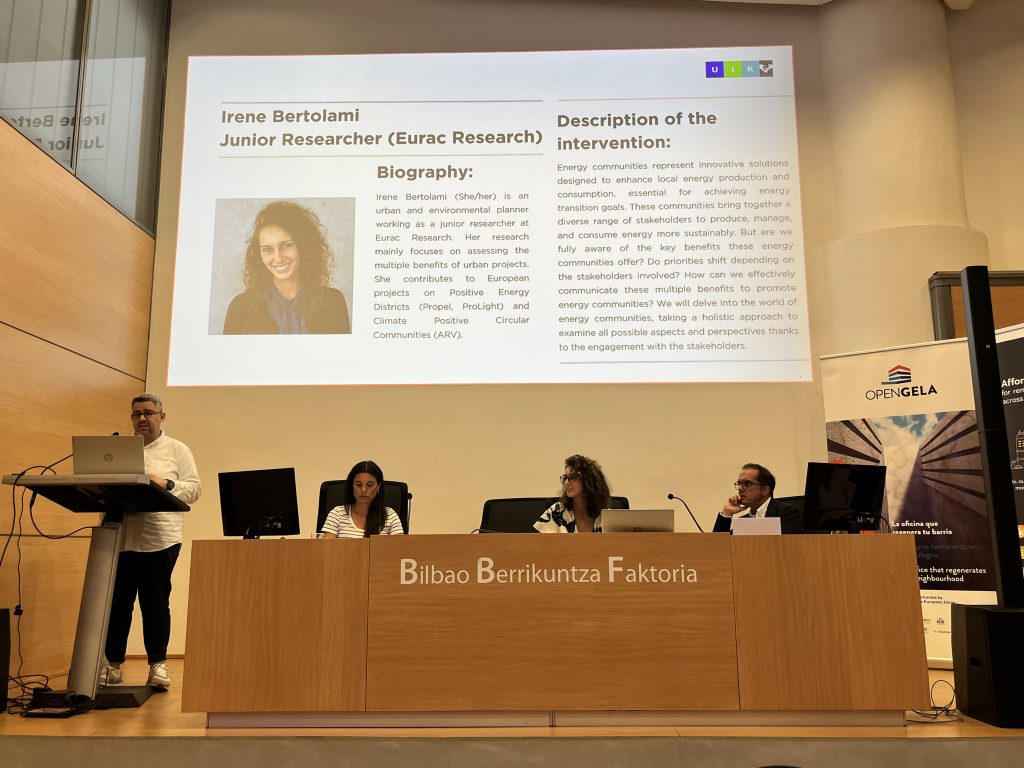
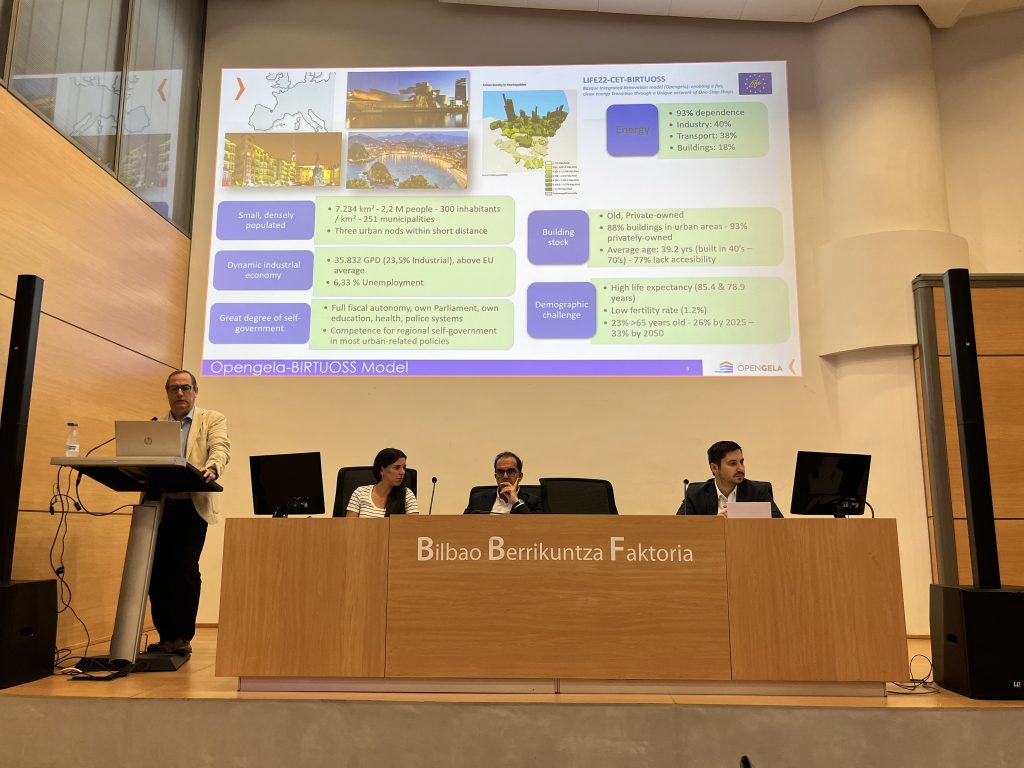
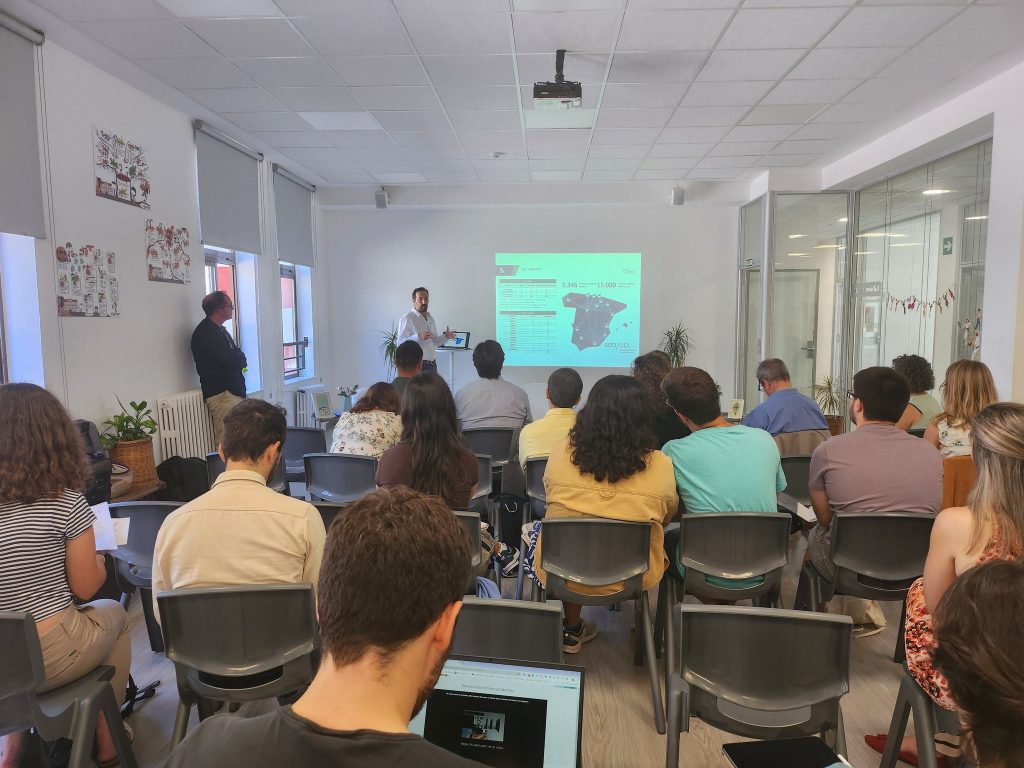
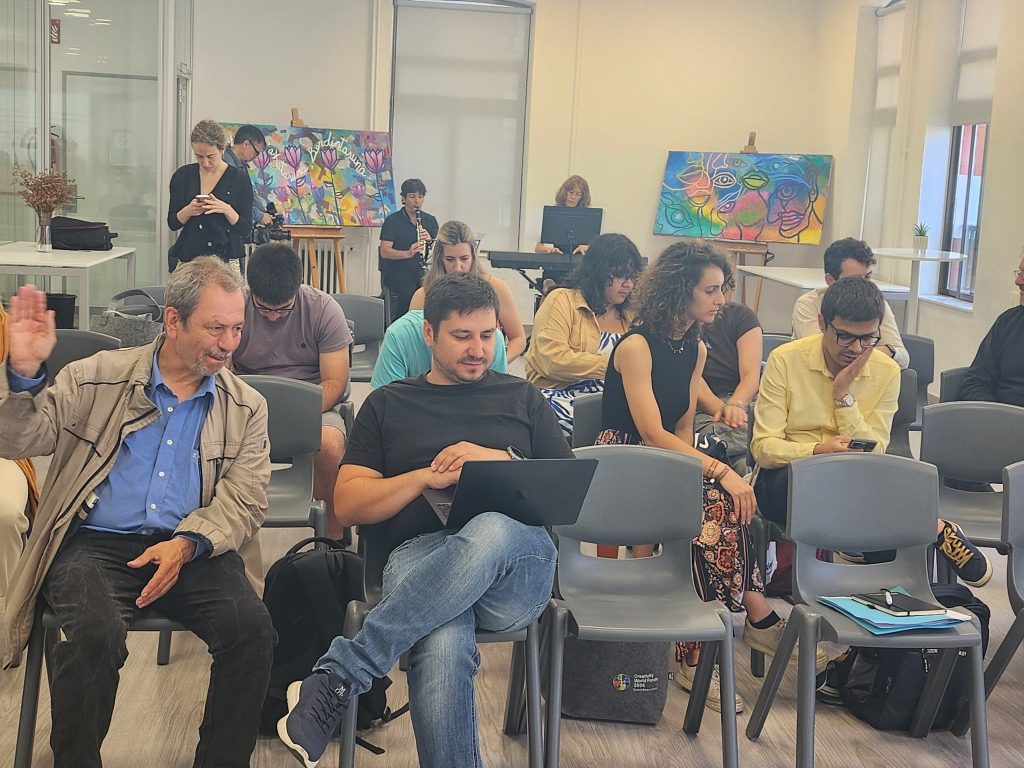
OPENGELA NEWSLETTER
Receive all news related to Opengela






